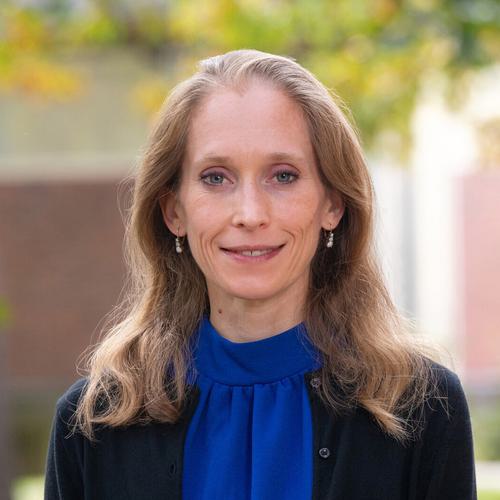
Tracy McAskill
Associate Teaching Professor in Physics
I like physics. I like math. I like teaching, and I am interested in methods that optimize the learning of physics.
My research is in particle physics, specifically weak production of mesons at mid-range energies. My work falls into phenomenology, which bridges theory and experiment. I attempt to model exclusive production of neutral pions through weak charged- and neutral-current interactions with nucleons. The use of the weak interactions with nucleons allows for the potential of flavor changing from the more easily probed up or down quarks to the more elusive strange or charm quarks. This can give insight into the intrinsic charm and strange content of nucleons. The use of neutral pseudoscalar mesons forces the quarks involved in the process to undergo a spin flip, which exposes what are known as the chiral odd general parton distributions. My day-to-day research involves a lot of Feynman diagrams, Dirac algebra, and work with MAPLE mathematics software.
At Wellesley College, I have taught Physics 104, Physics 106, Physics 107, Physics 108, Physics 302, and the introductory labs. I would be delighted to teach upper-level classical mechanics and electricity and magnetism at some point. I have also led independent studies in general relativity, special relativity, and introductory particle physics.
I like to think of teaching as story telling; if students can remember how the story starts (base concepts), they should be able to logically build the rest of the story from there. It is in this logical building that the how/what/why of the theory come out.
Students often feel that physics is scary or intimidating, and I try to dispel this by starting with the very basics, logically building the theory from there, and using language that is approachable. I have found that if students can remember the "rules" associated with a particular concept, they are very successful.
My other physics interests include general relativity, standard model physics, and spinors in general relativity.
My non-physics interests revolve around movement. I am a contortionist and fitness enthusiast. I formerly performed as a freelance contortionist in greater New England and abroad. I also teach contortion, and I have a lot of knowledge about injury prevention and imbalance correction in flexible people.
Education
- B.S., Texas Tech University
- M.S., Tufts University
- Ph.D., Tufts University